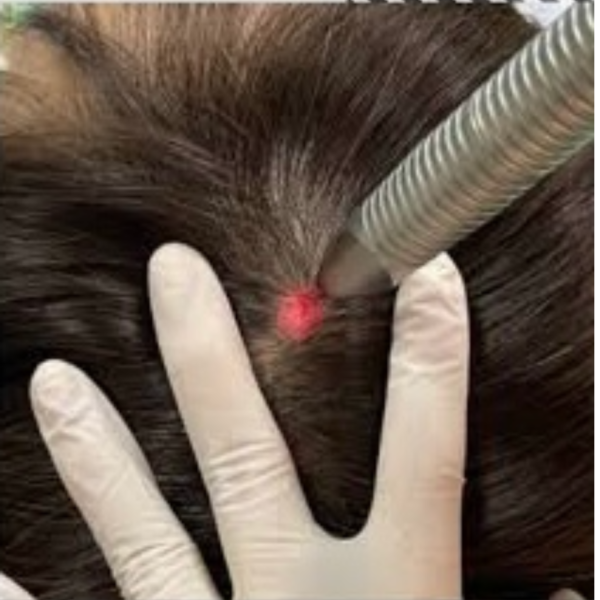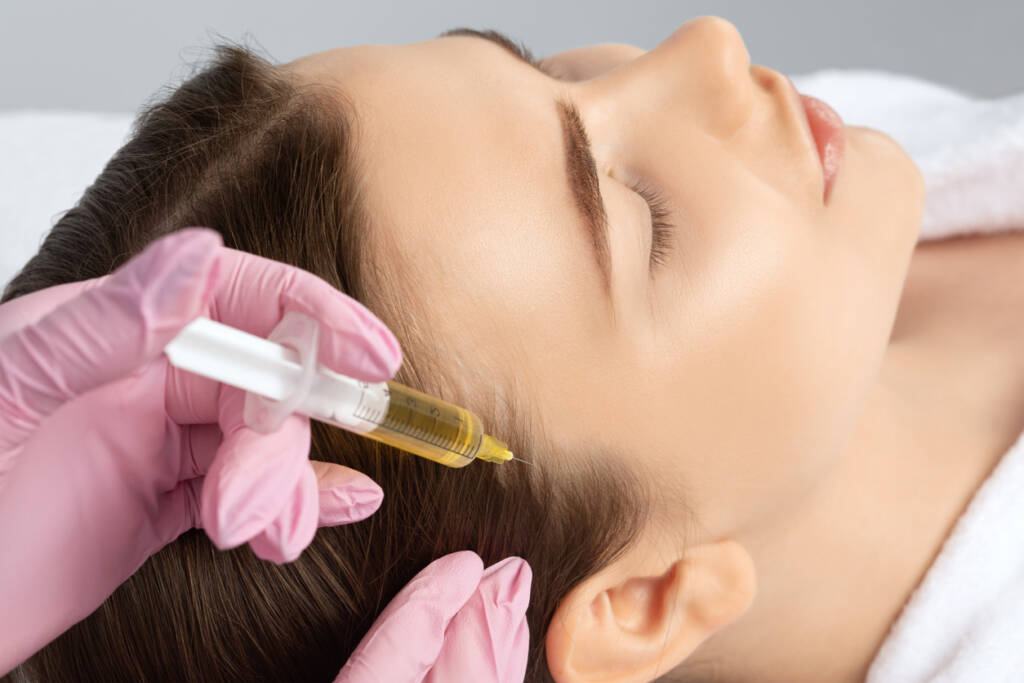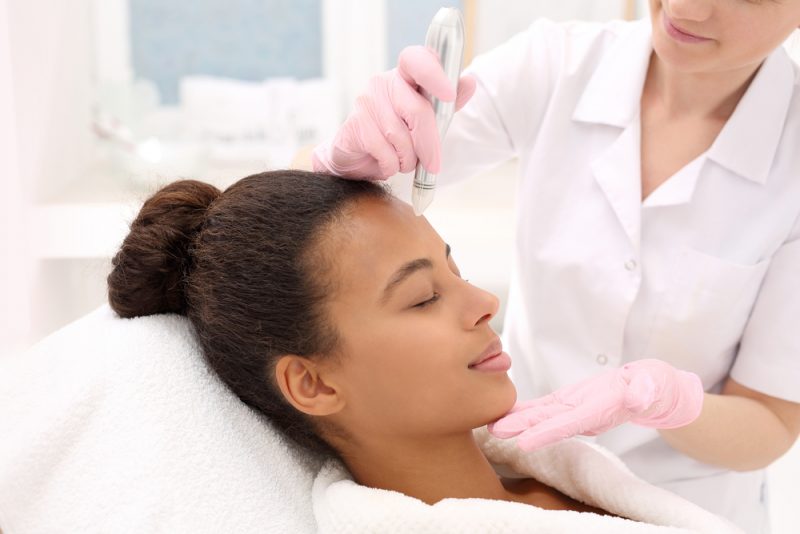Hair Loss
Understanding and Managing Hair Loss: A Comprehensive Guide
In today’s fast-paced world, hair loss has become a prevalent concern for many individuals. We understand the distress and self-esteem challenges that can arise from this issue. At En Santé Clinic & Medical Spa, we are committed to providing you with a comprehensive guide to understanding the causes of hair loss and effective strategies to manage and treat it.
A scientific problem with aesthetic significance
Hair loss, scientifically known as alopecia, can affect people of all ages and genders. It’s crucial to address this concern proactively to maintain healthy hair and overall well-being. In this guide, we’ll delve into the various factors contributing to hair loss and offer valuable insights into its management.
table of contents
- Causes of alopecia
Types of alopecia
Prevention and Maintenance
Advanced Treatment Options
Lifestyle and Dietary Considerations
causes of hair loss
Genetics (Heredity): The most common cause of alopecia is a hereditary condition called androgenic alopecia, more commonly known as male-pattern baldness or female-pattern baldness. It tends to occur gradually and in predictable patterns — a receding hairline and bald spots in men and thinning hair along the crown of the scalp in women.
Hormonal Changes and Medical Conditions: A variety of conditions can cause permanent or temporary hair loss, including hormonal changes due to pregnancy, childbirth, menopause, and thyroid problems. Medical conditions include alopecia areata, which is an immune system attack on hair follicles; and diseases such as lupus and diabetes.
Medications and Supplements: Hair loss can be a side effect of certain drugs, such as those used for cancer, arthritis, depression, heart problems, gout, and high blood pressure.
Radiation Therapy to the Head: The hair may not grow back the same as it was before.
Certain Hairstyles and Treatments: Excessive hairstyling or hairstyles that pull your hair tight, such as pigtails or cornrows, can cause a type of hair loss called traction alopecia. Hot oil hair treatments and permanents can cause inflammation of hair follicles that leads to hair follicle damage.
Poor Diet: Lack of proper nutrition can also lead to hair loss. A deficiency in nutrients like iron, zinc, and vitamins A and D can contribute to hair shedding.
Age: As you get older, your hair tends to naturally thin and become more brittle.
Autoimmune Disorders: Conditions like lupus or rheumatoid arthritis can cause hair loss as the body’s immune system attacks healthy hair follicles.
Certain Diseases and Infections: Fungal infections of the scalp can cause hair loss. Diseases like diabetes and lupus can also contribute.
Chemotherapy and Radiation: These cancer treatments can lead to hair loss as they target rapidly dividing cells, including hair follicles.
Excessive Hair Pulling: A psychological disorder called trichotillomania involves a compulsive urge to pull out one’s own hair, leading to hair loss
Our proprietary low level laser protocol is used to stimulate the hair follicles at the root, bring oxygen and improved blood supply to the scalp.

Your choice of PRP/PRF or PepFactor along with vital hair stimulation nutrients are micro-injected into the scalp. stimulates collagen and regeneration of blood supply allow hair to regrow.
TYPES OF HAIR LOSS
Not all hair loss is the same. There are different types, including androgenetic alopecia (male and female pattern baldness), alopecia areata (sudden hair loss in patches), telogen effluvium (temporary hair shedding), and more. Each type requires a customized treatment plan, and we’re here to guide you through the options.
PREVENTION AND MAINTENANCE
Prevention plays a key role in maintaining healthy hair. We’ll provide you with practical tips, such as proper hair care routines, the use of specialized shampoos and conditioners, and scalp massage techniques. Additionally, adopting a balanced diet rich in essential nutrients can significantly contribute to hair health.
ADVANCED TREATMENT OPTIONS
For those seeking more advanced solutions, there are several effective treatments available. These include FDA-approved medications like minoxidil and finasteride, low-level laser therapy, platelet-rich plasma (PRP) injections, and Hydrafacial’s Kervive. Hair transplant may be a good option in specific cases. Our experts can help you navigate these options to make informed decisions.
LIFESTYLE AND DIETARY CONSIDERATIONS
Lifestyle factors such as stress management, adequate sleep, and regular exercise can impact hair health. Furthermore, incorporating specific nutrients like biotin, vitamins A and D, and omega-3 fatty acids into your diet can promote hair growth and prevent further loss. Our guide offers a comprehensive overview of these considerations.

Results you can see
Hair stimulation, ask the skin around hair follicles loose collagen, blood supply is diminished, further reducing nutrient supply and resulting in hair loss and thinning. A series of 6 treatments of laser and growth factors /PRP spaced 2-4 weeks apart stimulates collagen and regeneration of blood supply allow hair to regrow.
